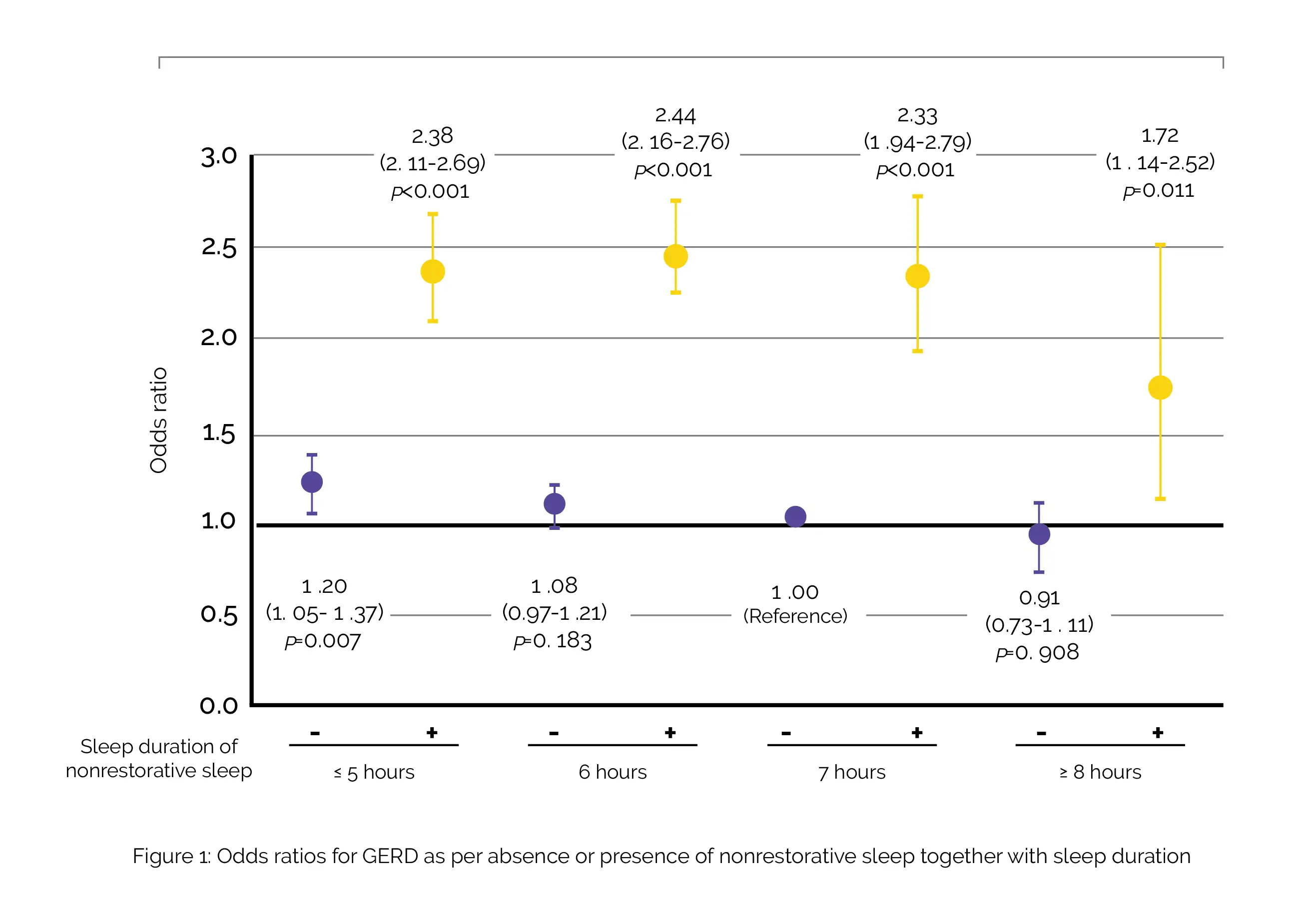Categories
Change Password!
Reset Password!


Regardless of the duration of sleep, nonrestorative sleep appears to contribute to heartburn comorbidity. Furthermore, heartburn can be triggered by short sleep durations, irrespective of the presence or absence of nonrestorative sleep.
A recent cross-sectional study conducted among Japanese active office workers has shed light on the association between nonrestorative sleep and heartburn, a common symptom of gastroesophageal reflux disease (GERD). Researchers aimed to investigate the connection between nonrestorative sleep and heartburn. Analyses of the findings of a single year’s medical examination were carried out for 29,475 office workers (aged 20 to 59 years).
Medical interviews were conducted utilizing personal computers to investigate the occurrences of nonrestorative sleep and heartburn. Furthermore, the study also examined the link between nonrestorative sleep, heartburn, and sleep duration. The volunteers had an average age (mean ± standard deviation) of 46.6 ± 8.7 years. Among them, 13% reported having heartburn, and 27% experienced nonrestorative sleep.
The combination of nonrestorative sleep and different sleep durations (≤ 5, 6, 7, or ≥ 8 hours) was independently associated with an increased risk of heartburn when compared to individuals without nonrestorative sleep and with a sleep duration of 7 hours (used as the reference). The odds ratios (OR) for this comparison were 2.38, 2.44, 2.33, and 1.72, respectively (Figure 1).

Additionally, the absence of nonrestorative sleep along with a sleep duration of ≤ 5 hours was also identified as an independent comorbid factor for heartburn in comparison with the reference, with an odds ratio of 1.20. Nonrestorative sleep in active workers could be a significant contributing factor to heartburn comorbidity, similar to workers without nonrestorative sleep, regardless of their sleep duration. Hence, workers experiencing nonrestorative sleep should prioritize the management of comorbid heartburn to safeguard their overall health and well-being.
Indian Journal of Gastroenterology
Relationship between nonrestorative sleep and heartburn among a Japanese occupational population
Hiromitsu Sekizuka et al.
Comments (0)